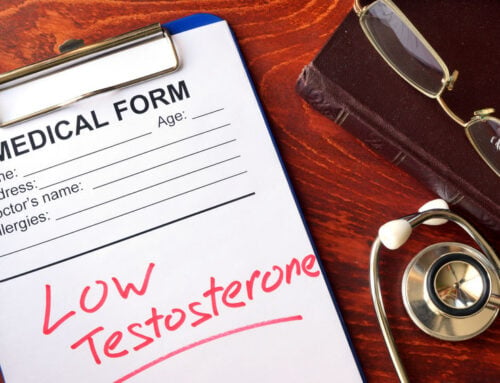Is Your Prostate Affecting Your Sleep?
Aging men are faced with a host of changes, such as decreased energy and hair loss. While aging is manageable, the constant need to urinate is one change men can do without. When this urge begins to impact sleep, there may be an underlying condition. Doctors link most cases to an enlarged prostate, which can disturb urine flow from the bladder. Understanding the root cause and receiving treatment through prostate management are keys to a good night’s sleep.

Could it be BPH?
The prostate is a small gland located beneath the bladder. This gland is also near the urethra, the tube that carries urine from the bladder to the penis. Prostates enlarge in older men, restricting flow from the bladder to the urethra. Prostate inflammation and cancer are some possible reasons. However, most cases are due to benign prostatic hypertrophy (BPH). This condition is a non-cancerous enlargement of the prostate. Researchers believe this growth occurs due to changing hormones that happen with age. Other possible causes include diabetes and obesity.
Signs and symptoms
Some men with BPH show little to no symptoms. Yet, most with the condition have difficulty controlling the flow of urine. There is involuntary leakage and a need to empty the bladder, even after using the bathroom. Other common symptoms include difficulty starting or stopping urine, a weak urine stream, and, of course, sleep disturbances. These symptoms often prompt men to visit a urologist for more help.
Managing with medication
In the past, most men believed that poor urinary control was just a sign of aging. Now, some helpful medications can make conditions like BPH more manageable. For instance, a healthcare provider may prescribe alpha-blockers or 5-alpha reductase inhibitors. Alpha-blockers relax the muscles around the prostate, allowing urine to flow more freely. The 5-alpha reductase inhibitors reduce the androgens that may be causing the enlarged prostate. The urologist often prescribes these drugs together to help with urine flow and shrink the prostate.
Lifestyle changes
Some simple lifestyle changes can improve the effectiveness of treatment. For instance, avoiding liquids at least 2 hours before bed helps men sleep through the night. Enlarged prostates are often linked with obesity. Maintaining a healthy weight through diet and exercise can help. Eating high-fiber foods and performing pelvic floor exercises must be added to these changes. If these changes and medication fail, surgery may help.
Surgical procedures
There are some minimally invasive procedures available to treat the enlarged prostate. The surgeon passes a tiny lighted scope through the urethra to access the prostate. From there, the surgeon cuts away tissue to give the urethra more space. Other options include radio waves, microwaves, and laser therapy. Removing part or all of the prostate is the best option in severe cases.
A better night’s sleep
Better prostate management can help with more restful sleep. An enlarged prostate is often due to BPH, but this does not rule out infections or cancer. If left unchecked, enlarged prostates can lead to more severe conditions. In some cases, the gland can continue to grow, impacting other organs. Thanks to medical advancements, men no longer need to suffer in silence.




